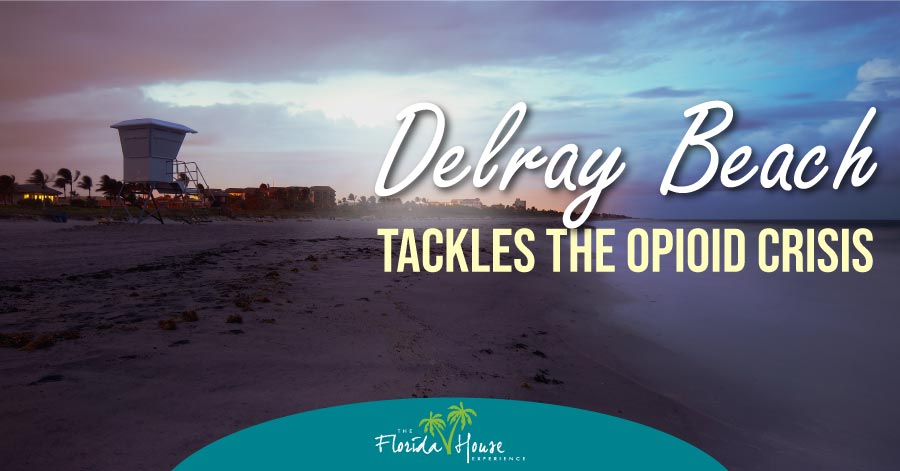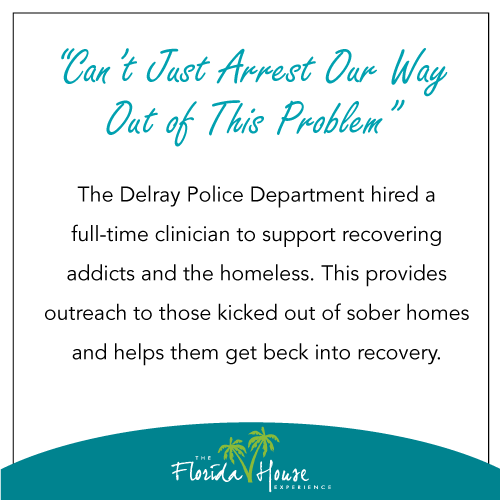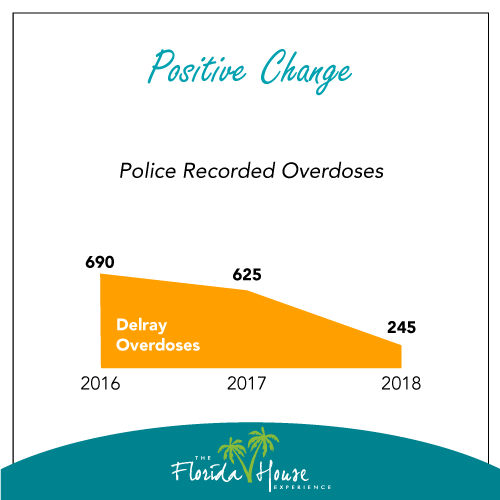
Opioid addiction continues to be a growing problem throughout the United States. The epidemic, according to the U.S. Centers for Disease Control and Prevention, has cost 700,000 lives from 1999 through 2017. In 2017 alone, there were 70,200 drug overdose deaths across the country — 68 percent related to opioid use. Each day, 130 people die from such an overdose.
The numbers are shocking. Communities continue to grapple with a lack of insight into what to do to help addicts avoid jail time or overdoses. Factors such as ineffective access to treatment and a lack of support are propelling the epidemic forward.
One Community Has a Plan to Change It All
 The police department in Delray Beach, Florida, created a new position that has cut the number of overdose deaths to a third of what they were in 2017. Its solution was to hire a full-time clinician. Mary Olsen, the assistant police chief in Delray Beach said, “It’s something unique that police departments don’t necessarily focus on. They don’t see clinicians and social work as a place for police … But we can’t just arrest our way out of this problem.”
The police department in Delray Beach, Florida, created a new position that has cut the number of overdose deaths to a third of what they were in 2017. Its solution was to hire a full-time clinician. Mary Olsen, the assistant police chief in Delray Beach said, “It’s something unique that police departments don’t necessarily focus on. They don’t see clinicians and social work as a place for police … But we can’t just arrest our way out of this problem.”
The effort to change was encouraged and led by Ashley Moody, who was just elected as attorney general in November. The initial goal is to save lives. However, the benefits also include reducing the impact the opioid epidemic has on the state’s law enforcement agencies.
Understanding the City’s Problem With Opioid Overdoses
After studying what was happening with the city, officials found that many of those overdoses were the result of people with a substance use disorder being evicted from sober homes without the proper care and treatment they needed. Many ended up on the streets only to overdose again.
People who have a chemical dependency have no ability to simply stop using the drug of their choice, and overdosing is common in the homeless community.
How the Program Works
Ariana Ciancio is the city’s service population advocate. Her job is to reach out to men and women with an addiction who may have just been told they have to leave a sober home. She then works to help them get back into a recovery program focused on improving their addiction — not just providing a place to sleep. This means there are fewer people with addiction dealing with homelessness, and fewer people overdosing in public locations.
Tackling the Sober Home Problem in Delray Beach

A key part of that investigation centered on just how many true sober homes existed in the city. In 2017, a study of these homes found 183 in the city limits. Many of these homes were located in clusters in various neighborhoods. As a result of their presence, a high level of police activity was common. Paramedics in these areas were also strained.
To change this, the city passed a law that allowed it to track properties where more than three people who were unrelated were living together. It found just 75 sober homes in the area — too few to meet the city’s needs.
Its changes also included tools to allow the city to remove or close down disreputable sober homes as well as those that were providing no service or were engaging in ineffective support. This helps minimize the number of people trapped in a cycle of moving from one location to the next.
The Results to Delray Beach’s Changes
Delray Beach has seen a significant change since these changes were put in place. In 2017, police recorded 625 overdoses. In 2018, this number dropped to just 245.
Delray Beach isn’t just leading the way in the use of a clinician. The city was also one of the first to provide the anti-overdose drug Narcan to police officers. The drug lets first responders quickly reverse the impact of the opioids, often saving lives. In 2018, police used Narcan 61 times.
To further improve its success, Delray Beach is also developing an 18-person task force with clinicians, prosecutors and leaders of the addiction-area nonprofit organizations. The Seminole County sheriff, along with Olsen, will be a part of the program. They continue to look for a way to help men and women avoid becoming statistics. The group, called the Opioid Abuse Working Group, will develop strategies to help further reduce overdoses by helping people obtain the care they need.
Helping Your Loved One With Opioid Addiction
Whether homeless or living an active life, those with an opioid addiction need support. This includes detoxing in a safe environment — not on their own — and long-term treatment for their addictions. FHE Health can help with this type of care. For a no-obligation consultation, call today to talk to our team about getting the help you or your loved one needs.






